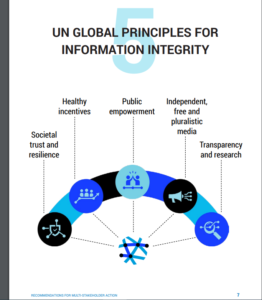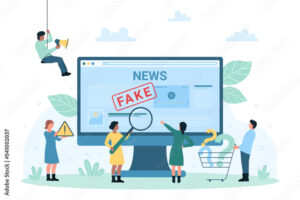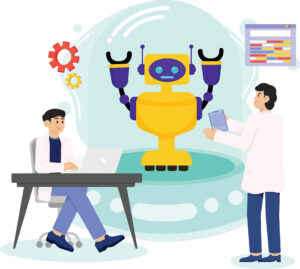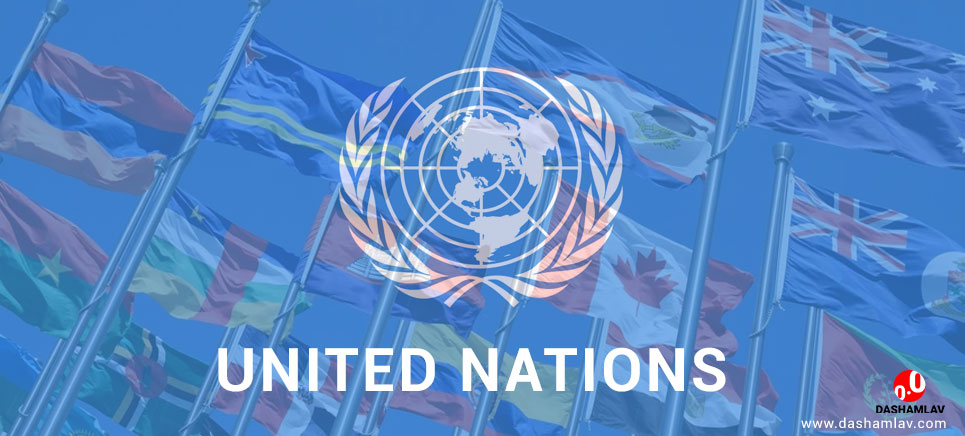United Nations unveils ‘Guiding Principles’ to combat against the mass dissemination of Hate speech, and to protect the integrity of information flowing on the space of internet. These Principles have been introduced to deal with the current, and future threat to information amid the integration of Artificial Intelligence based technology. UN secretary general has launched these 5 principles through a press conference and its paper titled, “United Nations Global Principles- For Information Integrity- Recommendations for Multi-stakeholder Action”. These principles places responsibility on the stakeholders to take necessary precautions and actions to combat the evil of hate speech and manage the integrity of information following through internet.
BACKGROUND OF THE PAPER
Technological advances have revolutionized communications, connecting people globally and providing unprecedented opportunities for knowledge diffusion, cultural enrichment, and sustainable development. These advancements raise ambitions for an information ecosystem where freedom of expression thrives, and accurate, reliable information is accessible to all. However, these same technologies have facilitated the rapid spread of misinformation, disinformation, and hate speech. These threats have been further concentrated due to the development and integration of Artificial Intelligence based Technology. Moreover, the increase in use of Artificial Intelligence based technology have led to the erosion of information integrity that has acted as a catalyst in undermining human rights and has hamper the efforts taken for protecting the peace of people.
Recognizing these challenges, the United Nations introduced the ‘Guiding Principles’ to protect the integrity of information, empower individuals and to make the digital ecosystem safe for everyone.
INTRODUCTION
The United Nations in its paper “United Nations Global Principles For Information Integrity: Recommendations for Multi-stakeholder Action” unveils United Nations Global Principles for Information Integrity and protection against hate speech. Through this paper, UN has launched 5 Principles aimed at addressing and countering hate speech and to preserve the integrity of Information following on the internet.

These Principles for Information Integrity provide a framework for multi-stakeholder action, consisting of five principles: Societal Trust and Resilience, Independent free and Pluralistic media, Transparency and Research, Public Empowerment, and Healthy Incentives. These principles are grounded in human rights and international law, complementing existing UN guidelines. They offer a unified approach to protecting and promoting information integrity, guiding the work of the Organization into the future.
PRINCIPLES INTRODUCED

1. Society Trust and Resilience-

- It is recognized that Trust and Resilience are key components of Information Integrity. ‘Trust’ refers to the confidence that people have in the sources and reliability of the information that they access, including official sources and information, and in the mechanisms that allow information to flow throughout the ecosystem. ‘Resilience’ refers to the ability of societies to handle disruptions or manipulative actions within the information ecosystem.
- The role of Large Tech companies in influencing information ecosystem is acknowledged. It is said that Large tech companies significantly influence the information ecosystem, with AI technologies like generative AI amplifying risks by producing believable yet false, and rapid-spreading content.
- There is a need of inclusive digital eco system for vulnerable and marginalized groups, such as women, children, and minorities, enabling effective digital trust and safety practices.
- Enhancing resilience involves providing diverse information sources and addressing societal needs to prevent risks from proliferating, especially during critical times like elections and crises.
2. Healthy Incentives-

- The prevailing business models of targeted advertising and content monetization, while enabling substantial growth for digital platforms and the creator economy, simultaneously create incentives for spreading disinformation and hate, thus compromising the integrity of the information ecosystem.
- These models are exploited by various actors, including information manipulators and public relations firms, who capitalize on the attention economy. This system prioritizes engagement through polarizing and emotionally charged content, which algorithms amplify to maximize revenue, often at the cost of spreading harmful content.
- The digital advertising processes designed by the technology sector are intentionally complex and opaque, with minimal oversight. This benefits the ad tech supply chain, especially large technology companies, while posing material risks for brands due to inadvertent funding of undesired individuals, entities, or ideas.
- The degradation of information ecosystem integrity underscores the urgent need for a shift in incentive structures. Future business models should be guided by human rights principles and avoid reliance on algorithm-driven targeted advertising based on behavioral tracking and personal data.
- Advertisers can significantly influence the information ecosystem by demanding transparency in advertising processes and adhering to human-rights responsible advertising policies. This not only strengthens information integrity but also enhances return on investment through better control of a transparent supply chain.
3. Public Empowerment

- Empowering individuals in the information ecosystem means ensuring they have control over their online experience and can make informed decisions about the media they consume. This involves giving users consistent access to diverse and reliable information sources and the ability to express themselves freely.
- Digital spaces can enhance public empowerment by connecting people across geographical boundaries and fostering inclusive participation in public life. When used positively, these spaces enable individuals, especially those marginalized, to gain agency and engage in collective progress.
- Despite their potential, digital technologies can impede empowerment by limiting individuals’ control over personal data and exposing them to algorithmic content curated by large technology companies. Transparency in how information is prioritized and promoted is essential for genuine empowerment.
- Technology companies should prioritize user feedback and privacy, enhancing user control and choice. This includes recognizing user privacy rights, providing input on trust and safety, and ensuring interoperability with a range of services from different providers.
- Initiatives focused on media, information, and digital literacy are crucial for empowering individuals, particularly women, older persons, children, youth, persons with disabilities, and other vulnerable groups. As Internet connectivity improves, empowering new users and equipping those without adequate access with necessary digital skills is vital for safe and productive online experiences.
4. Independent, Free and Pluralistic Media–

- Achieving information integrity requires an independent, free, and pluralistic media. A free press is essential for upholding the rule of law, fostering democratic societies, enabling informed civic discourse, holding power accountable, and protecting human rights.
- Journalists and media workers, including women and marginalized individuals, must be able to report safely and openly. Consistent access to diverse and reliable news sources is crucial for maintaining a free press.
- The media have a crucial responsibility to provide reliable and accurate information, helping to mitigate risks to information spaces. However, press freedom is under threat globally, leading to challenges such as online and offline harassment and violence against media workers.
- The migration of advertising revenue to the digital space, dominated by large technology companies, has negatively impacted the news industry. This shift threatens media diversity and undermines local and public interest journalism, allowing corporate interests to exert more control over media outlets.
- Urgent and robust measures are needed to support public interest news organizations and media workers, especially in areas with limited media infrastructure. Efforts should include sustained media development assistance and support from states and technology companies to ensure press freedom and journalist safety.
5. Transparency and Research–

- The dominance of a few technology companies and media owners in controlling vast amounts of data creates significant barriers to transparency in how information is spread and personal data are used. This situation is often intertwined with political and economic interests, affecting global information flows.
- Regulatory decisions made in countries where major technology firms are headquartered heavily influence global transparency standards. These decisions can limit public interest research and hinder efforts to address equity and the needs of marginalized communities worldwide.
- The deployment of AI introduces additional complexities into understanding and researching the information ecosystem. The full implications of AI on information integrity are still largely unknown, posing challenges to maintaining transparency and data privacy.
- Multi-stakeholder collaboration is essential to establish a comprehensive understanding of global information environments. This includes enhancing data availability, quality, and usability, while ensuring privacy-preserving access for diverse researchers. Protection of academics, journalists, and civil society actors is crucial to fostering unbiased research and reporting.
- Efforts to promote information integrity should prioritize evidence-based actions that address research gaps and inequalities. This requires safeguarding the independence and safety of those involved in critical investigative work.
RECOGNISED STAKEHOLDERS & RECOMMENDATIONS
The United Nations has emphasized partnerships and collaborative approach in maintaining the integrity of information and to establish an inclusive Digital Eco-system. Through this paper, the United Nations has placed greater responsibility on stakeholders to understand and implement the guiding principles. The recognized stakeholders include:
- Artificial Intelligence Actors
- The Technology companies
- News Media
- Advertisers and other private sector advisers
- Research and Civil Society organisations
- The United Nation
- State and Political Actors
The recognised Stakeholders have been entailed with several responsibilities to ensure the application of these principles in their respective arenas.
CONCLUSION
The Guiding principles introduced by United Nations are the response of the Artificial Intelligence based dissemination of information on the space of internet. The uncertainty that comes with the integration of AI has questioned the integrity of information, and the aftereffects of it could be far reaching than expected. These principles has placed greater reliance on the Actors of state along with other stakeholders recognizing that the change starts from home. The strategy has introduced Five principles that includes: Societal Trust and Resilience, Independent free and Pluralistic media, Transparency and Research, Public Empowerment, and Healthy Incentives. Along with introducing the guiding principles, the strategy has also recognized several stakeholders. With each guiding Principles, the united nations has also placed responsibility to each stakeholders in accordance with their role in the society.
These guiding principles are set in accordance with the adaptation of new technology and the dynamic nature of society with the introduction and integration of new technology. The Principles shall act as a guiding light in response to the global challenge maintaining the integrity of information on the space of internet.
References-
You can download/Read the report Pdf here.

